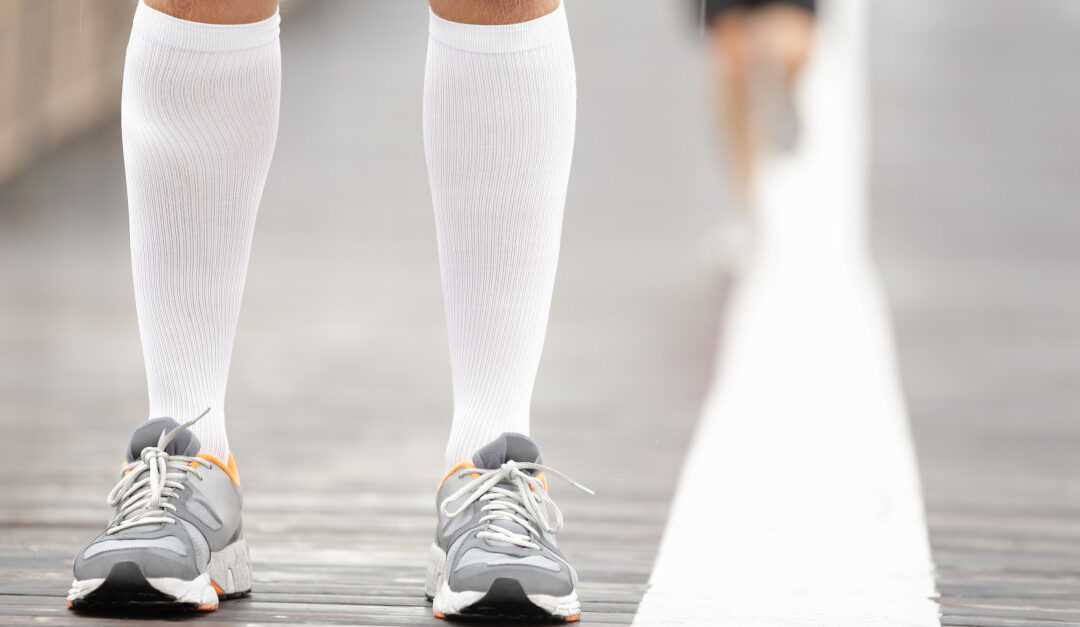Blood circulation is vital to your health and well-being, as it delivers oxygen and nutrients to your organs, while also removing toxins. Poor circulation can cause various health issues, including fatigue, varicose veins, joint pain, cognitive dysfunction, and digestive problems.
To maintain a healthy blood flow, compression socks can be a highly effective tool. But, how do you know if they are right for you?
What Are Compression Socks?
Compression socks (or compression stockings) are socks or sleeves designed specifically to apply gentle pressure to your legs. Though they do not cut off blood flow or circulation, they are tighter than regular socks, with a snugger fit. The mild pressure they apply promotes circulation, helping with healthy blood flow.
Compression socks come in various forms and strengths, depending on your need. A “graduated fit” may mean they are tighter at the ankle and looser as the sock moves up your leg. Others come in the form of a “tube” shape, surrounding the leg with nothing over the foot. Consultation with your doctor or vein specialist will help determine the right type for you.
How Do Compression Socks Help?
Compression socks help improve the function of the muscle pump system in your calf, and minimize the pooling of blood in your legs. This can bring relief in a multitude of areas, including:
- Reduced leg swelling
- Prevention of blood clots (either post-surgery, or during extended periods of inactivity)
- Reduced varicose veins
- Reduced leg cramping
- Reduced risk of deep vein thrombosis (DVT)
- Reduced risk of lymphedema
Compression socks can also be helpful to athletes, as they enhance performance and potentially reduce the risk of injury. Pregnant women may also benefit from their use.
Do I Need Compression Socks?
You may want to try compression socks if you:
- Experience pain in your legs
- Have leg swelling
- Sit or stand for long periods
- Experience pain after traveling
As orthopedic foot surgeon Dr. Georgeanne Botek told Cleveland Clinic Health Essentials, one of the positive aspects about compression socks is that anyone can try them. You don’t need a doctor’s approval, and there are few risks to experimenting with their efficacy.
However, it is always a good idea to talk with your doctor about your vein health concerns, especially if you feel you are at risk of blood clots, lymphedema, or diabetes. Compression socks may help with these conditions, and your doctor can prescribe them and advise you in the process. And if prescribed by your doctor, you may also be able to apply insurance benefits.
Tips For Wearing Compression Socks
As you start to wear compression socks, there are a few things to remember:
- Have clean, dry skin, and sit down when putting them on.
- Protect your compression socks from damage by wearing socks or shoes over them.
- Check your legs daily for skin color changes or irritations.
- Replace your compression socks if they are damaged. Tears or runs compromise their fit.
If you have a venous concern or need help deciding if compression socks are right for you, our specialists can help. Contact Vascular Surgical today to schedule a consultation online or call 770-428-0595.





